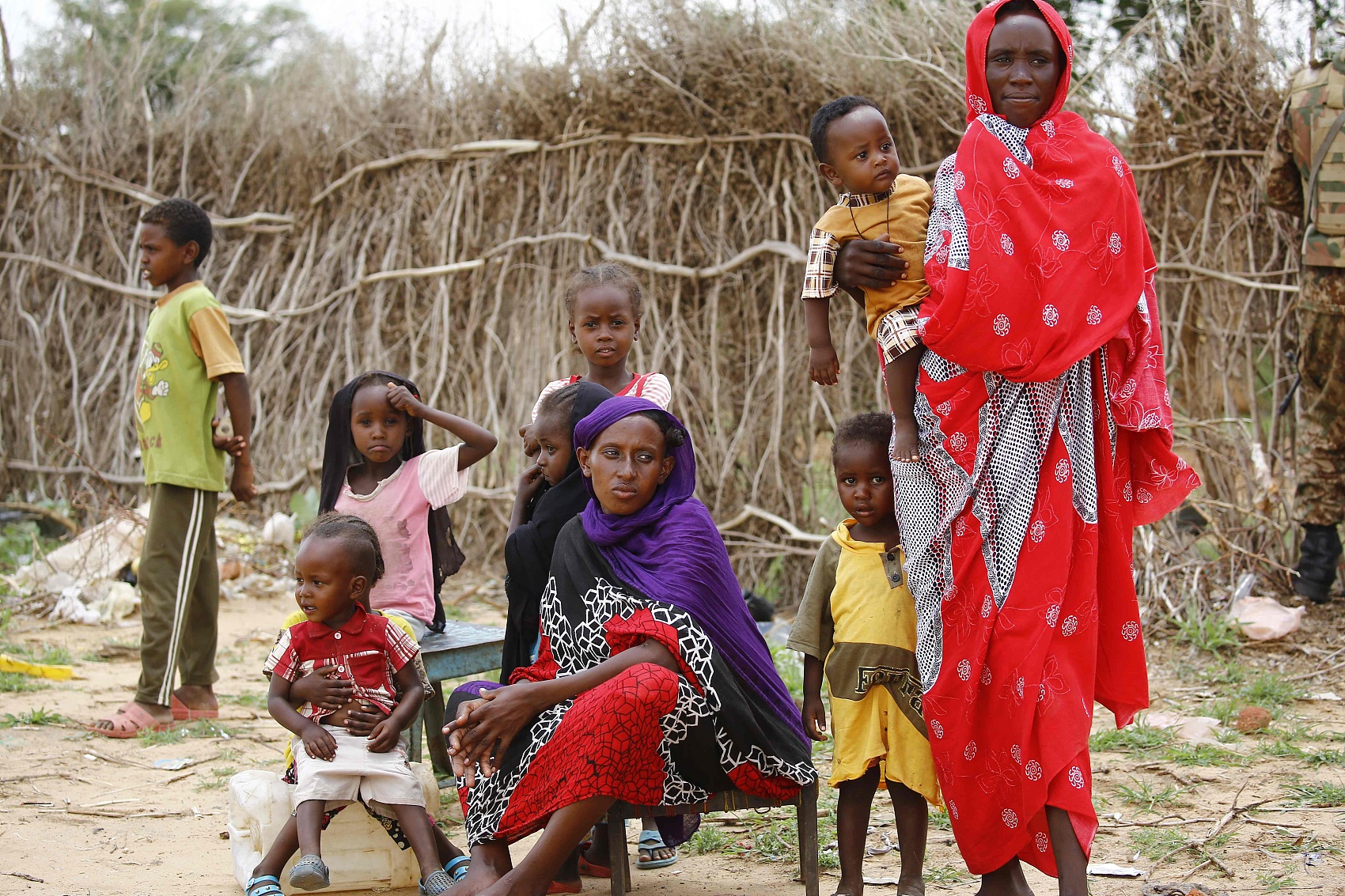
File photo of South Sudan refugees. Photo: VCG
South Sudan said that it has extended the state of emergency in four restive states until next year in a bid to curb the recent spike in rival communities and clan-based violence amid ongoing disarmament on November 10, 2017.
Presidential spokesman Ateny Wek Ateny told Xinhua on November 10 that President Salva Kiir extended the State of emergency to three more months in the northern states of Wau, Tonj, Gogrial and Aweil experiencing community-based conflicts as the army (SPLA) conducts disarmament to rid the areas of illegal weapons.
"The President on Thursday extended state of emergency in four states. The reason is disarmament and conflicts between communities in these areas," Ateny said in Juba.
The state of emergency was initially declared in July in the war-torn country which covers president Kiir's home area of Gogrial where two rival ethnic Dinka clans of the Apuk and Gwok have continued to clash amid killings, cattle theft and displacements.
"In Gogrial the conflict is between the Agwok and Apuk clans and Wau is fighting between rival communities," Ateny disclosed.
Rival ethnic violence over local resources continues unabated and the presidential directive to create 28 more states from the previous 10 in 2015 seems to have further intensified intermittent violence among rival armed communities that usually involves child abductions and cattle raiding.
In May, the Dinka and Murle pastoral communities signed peace agreement following violence between the northeastern Jonglei and Pibor area near the Ethiopian border, also the UN reported over 25 people were killed and 27 wounded in the Western Gok state following rival clan clashes.
Despite ongoing disarmament efforts, South Sudan remains awash with small illegal guns in the hands of the public following long decades of civil war that won independence from Sudan in 2011.
South Sudan descended into violence in December 2013 after political dispute between President Kiir and his former deputy turned rebel chief Riek Machar led to split within the SPLA, leaving soldiers to fight alongside ethnic lines between the two major ethnic groups Dinka and Nuer of which the two rivals belong respectively.
The 2015 peace agreement to end the conflict was weakened after outbreak of renewed fighting in July 2016 caused the SPLA-in opposition rebel leader Machar to flee the capital.


